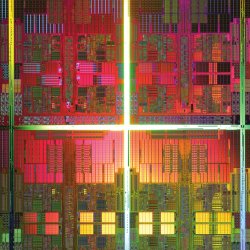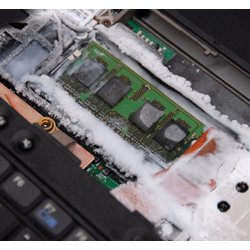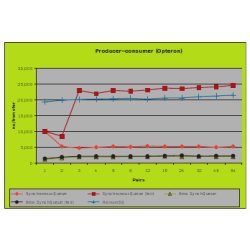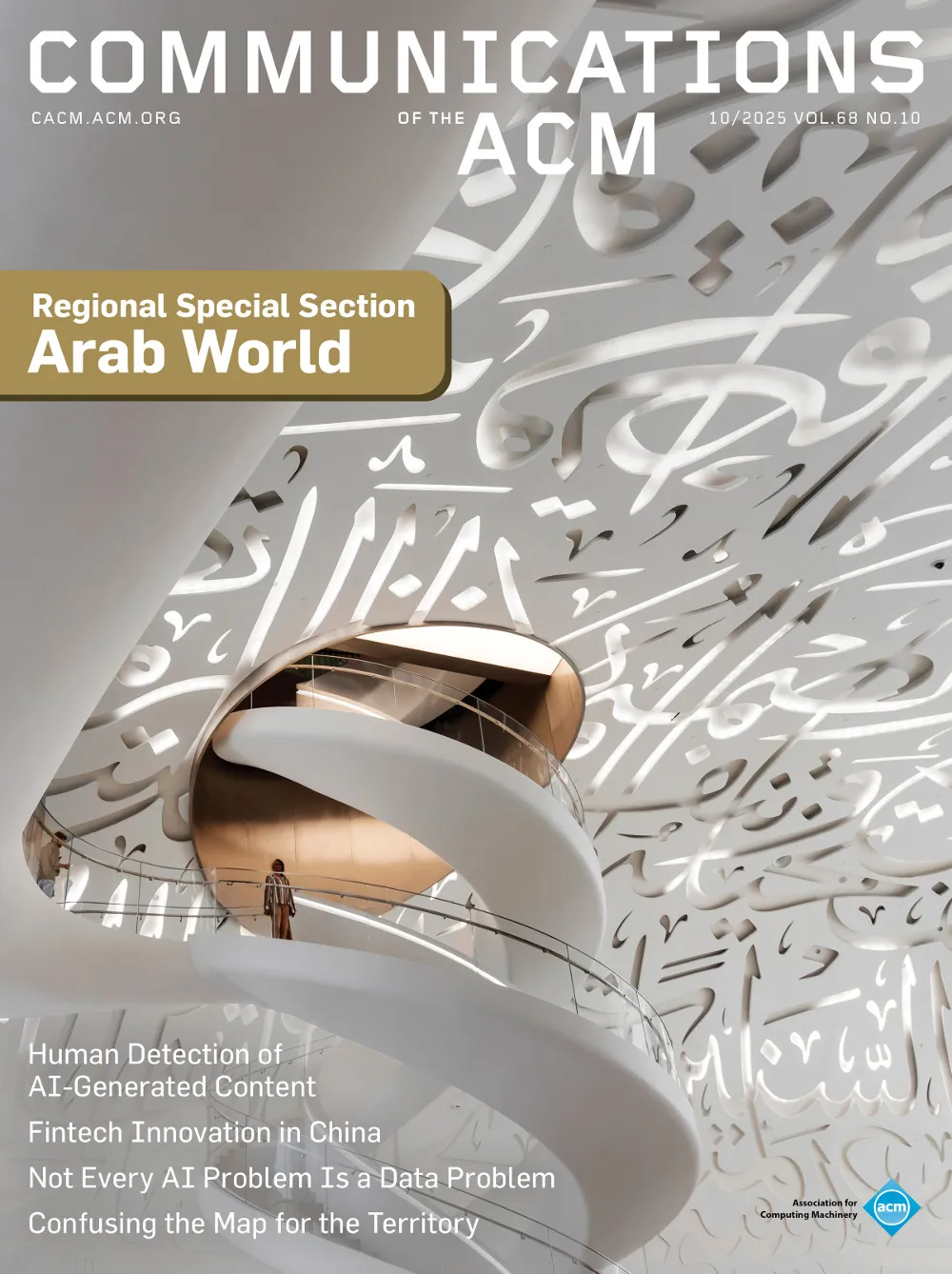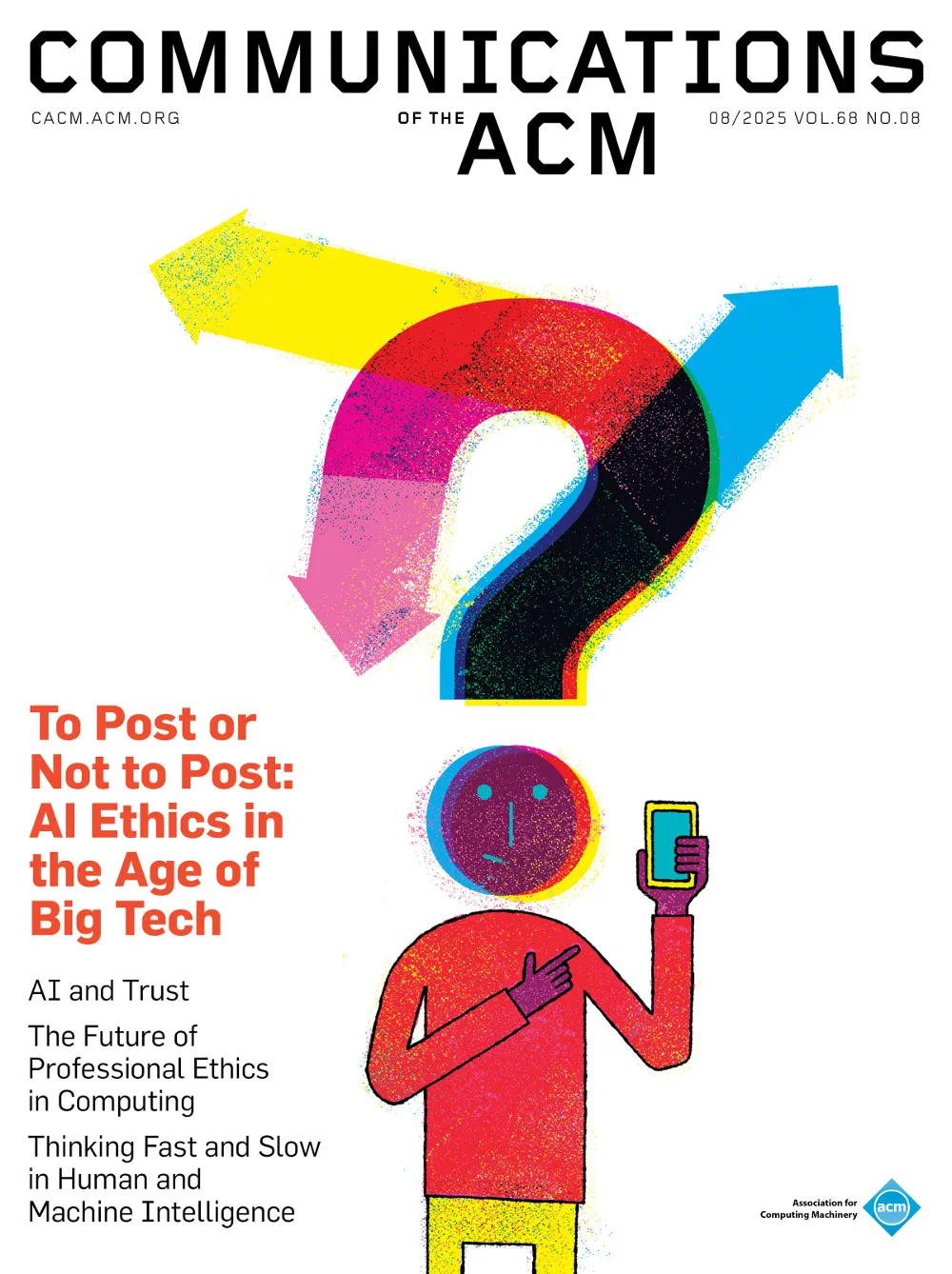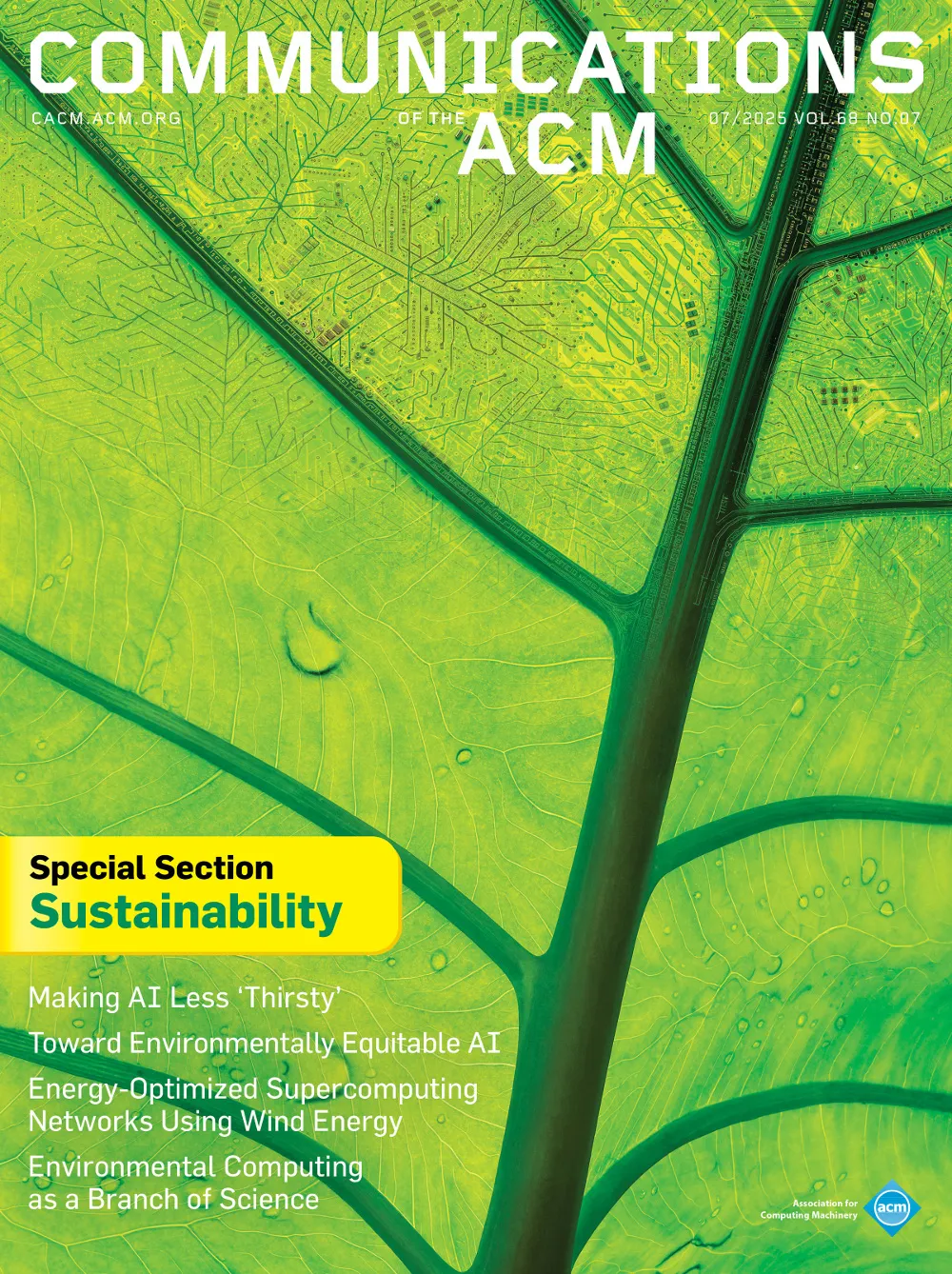Conferences vs. Journals in Computing Research
May 2009 - Vol. 52 No. 5

Features
Logic of Lemmings in Compiler Innovation
Recommendation Algorithms, Online Privacy, and More
The Print-Web Partnership Turns the Page
The Network Neutrality Debate Hits Europe
Increasing Gender Diversity in the It Work Force
The Rise, Fall, and Resurrection of Software as a Service
Teaching Computing to Everyone
Program Committee Overload in Systems
Technical Perspective: A Chilly Sense of Security
Lest We Remember: Cold-Boot Attacks on Encryption Keys
Technical Perspective: Highly Concurrent Data Structures
Puzzled: Understanding Relationships Among Numbers
Software Developers’ Views of End-Users and Project Success
Designing Ubiquitous Computing Environments to Support Work Life Balance
An Overview of IT Service Management
Toward an Information-Compatible Anti-Spam Strategy
Cross-Bidding in Simultaneous Online Auctions
To Trust or to Distrust, That Is the Question: Investigating the Trust-Distrust Paradox
Reflections Today Prevent Failures Tomorrow
Technical Opinion: Semantic Ambiguity: Babylon, Rosetta or Beyond?
















